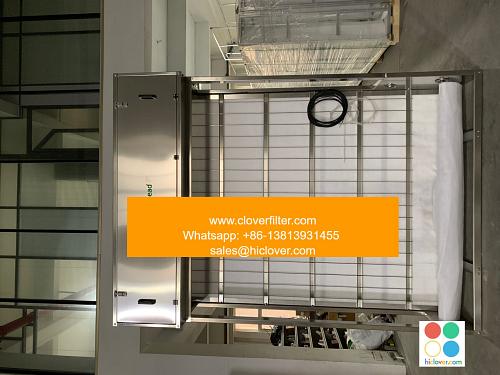Maximizing Airflow: The Importance of Proper Air Filter Sizing

Proper air filter sizing is crucial for maximizing airflow and ensuring the optimal performance of heating, ventilation, and air conditioning (HVAC) systems. In this article, we will explore the importance of proper air filter sizing and its impact on indoor air quality, energy efficiency, and system longevity.
Air Filter Sizing Basics
Air filter sizing refers to the process of selecting the correct size and type of air filter for a specific HVAC system. This involves considering factors such as airflow rates, system capacity, and filter efficiency. Proper air filter sizing is essential for minimizing pressure drops and maximizing airflow, which in turn helps to reduce energy consumption and lower operating costs.
Application Areas
Proper air filter sizing is critical in various application areas, including:
* Residential HVAC systems: Proper air filter sizing helps to improve indoor air quality and reduce energy bills in homes.
* Commercial HVAC systems: Proper air filter sizing is essential for maintaining a healthy indoor environment and reducing energy costs in commercial buildings.
* Industrial HVAC systems: Proper air filter sizing helps to optimize system performance and reduce downtime in industrial facilities.
* Pharmaceutical and healthcare facilities: Proper air filter sizing is critical for maintaining sterile environments and preventing contamination in pharmaceutical and healthcare facilities.
Consequences of Improper Air Filter Sizing
Improper air filter sizing can have severe consequences, including:
* Reduced airflow: Undersized air filters can reduce airflow, leading to increased energy consumption and lower system performance.
* Increased pressure drops: Oversized air filters can increase pressure drops, leading to reduced system efficiency and increased energy costs.
* Premature system failure: Improper air filter sizing can lead to premature system failure, resulting in costly repairs and downtime.
Tips for Proper Air Filter Sizing
To ensure proper air filter sizing, follow these tips:
* Consult the manufacturer’s specifications: Check the manufacturer’s specifications for the recommended air filter size and type.
* Consider airflow rates: Consider the airflow rates of the HVAC system when selecting an air filter.
* Choose the right filter efficiency: Choose an air filter with the right efficiency rating for the application.
* Regularly inspect and maintain air filters: Regularly inspect and maintain air filters to ensure they are operating at optimal levels.
Conclusion
In conclusion, proper air filter sizing is crucial for maximizing airflow and ensuring the optimal performance of HVAC systems. By considering factors such as airflow rates, system capacity, and filter efficiency, and by following the tips outlined in this article, you can ensure that your HVAC system is operating at peak performance while minimizing energy consumption and lowering operating costs. Remember, proper air filter sizing is essential for maintaining good indoor air quality, reducing energy costs, and extending system longevity. It seems like you forgot to include the prompt. Could you please provide more details or clarify what you would like to talk about? I’m here to help with any questions or topics you have in mind.

